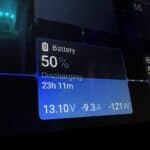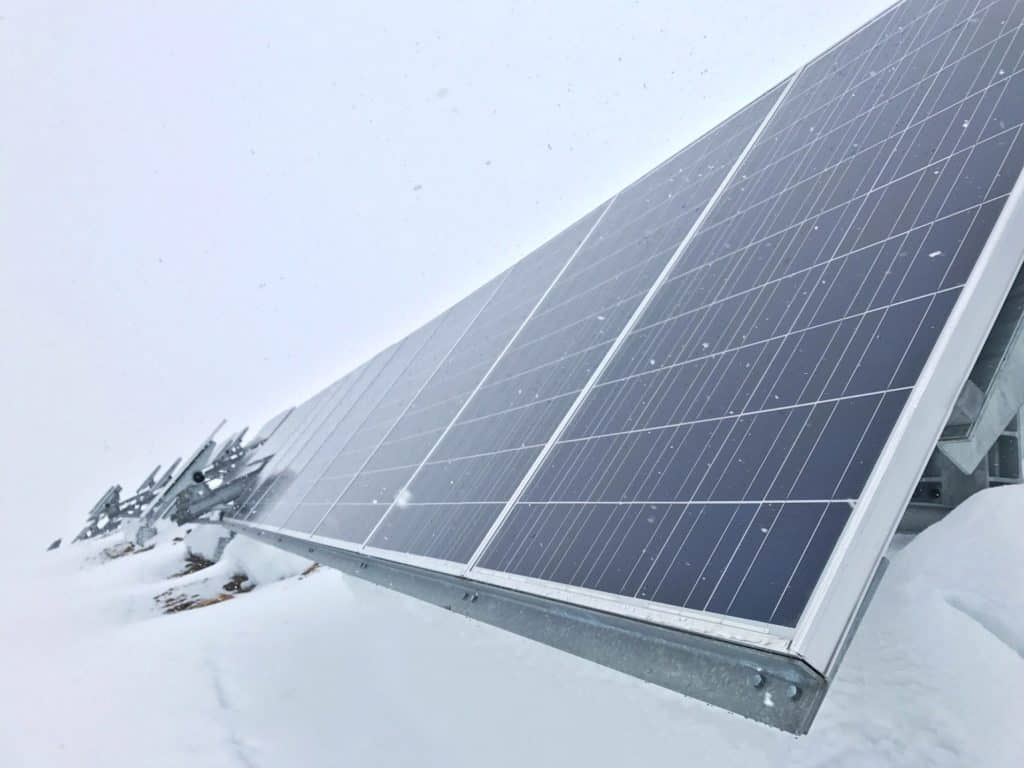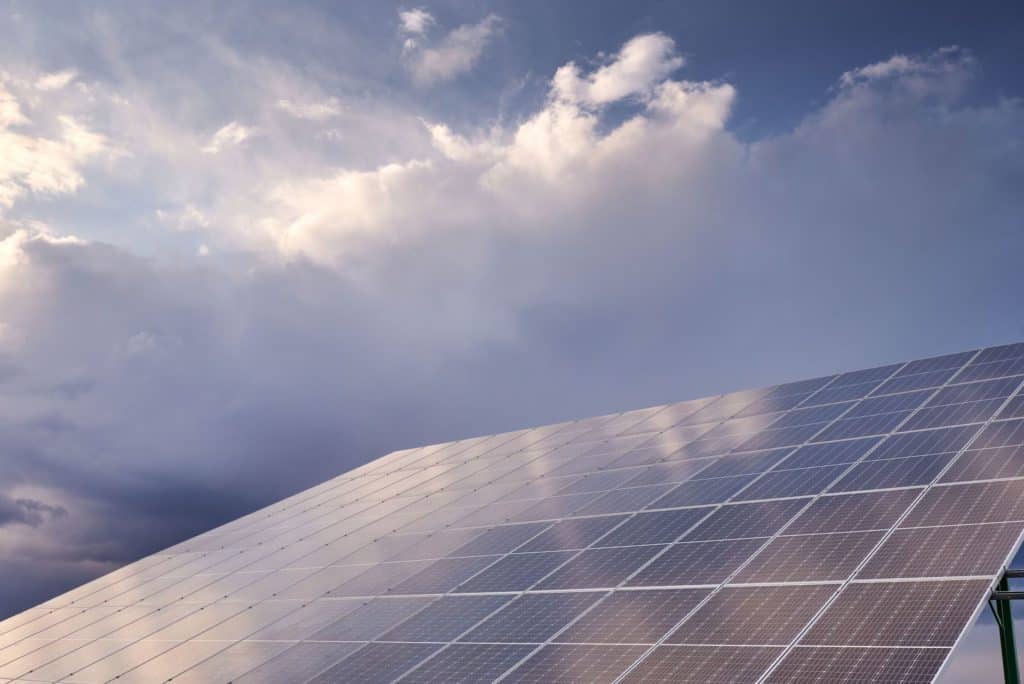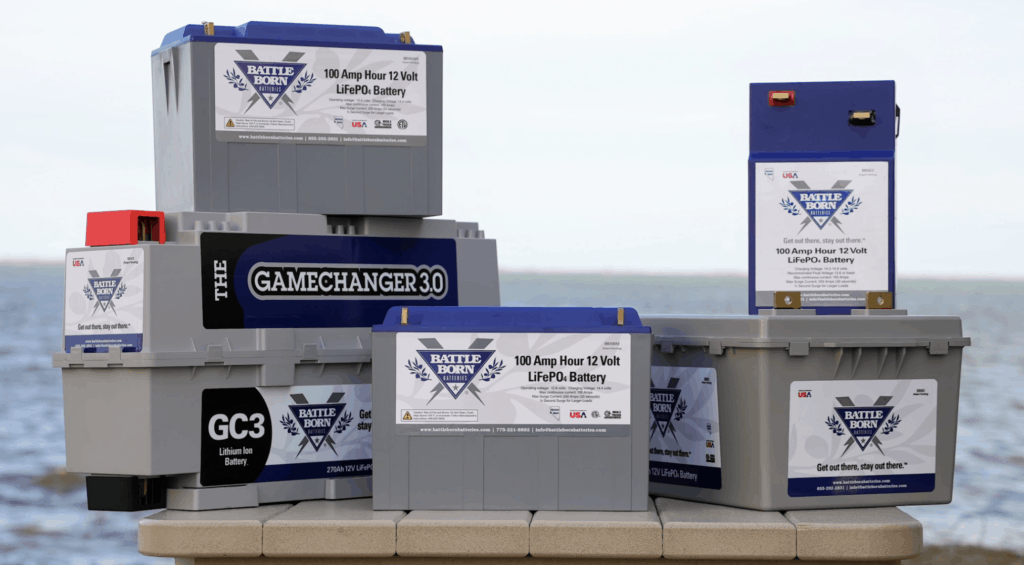
MENUMENU
TALK TO AN EXPERT
Special Hours: 7AM – 6PM PST
TALK TO AN EXPERT
Special Hours: 7AM – 6PM PST
Are you considering using solar power for your home, RV, or boat? If so, you’re probably wondering if your solar panels work on cloudy days. After all, there’s nothing more frustrating than spending thousands of dollars on an epic solar setup, only to have your precious energy system hampered by the weather.
Well, you’ve come to the right place. This article answers the age-old question that every renewable energy enthusiast is asking: How well do solar panels work on cloudy days?
Let’s dive in.
You’ll be glad to know that solar panels do work on cloudy days, just not as well. This is because the photovoltaic cells can still create electricity with both direct and indirect sunlight. While they work most efficiently with direct sunlight, they can use reflected or dispersed light to create that valuable energy flow.
Solar panels work using only certain frequencies of light, meaning a lot of the spectrum goes unused. Luckily, clouds tend to scatter all wavelengths equally and thus the detriment to the solar panel’s output is primarily just due to the thickness of clouds.

Okay, we’ve covered the good news; but how well do solar panels work on cloudy days? Unfortunately, you’ll experience a rather significant energy reduction when the weather is a bit gloomy. Specifically, you’ll probably only get 10-25% of the power on cloudy days compared to days when you have direct sun. This varies considerably depending on the cloud thickness. With light clouds, you may get around 20%. But with heavy thunderstorms, you will see almost no power.
One interesting phenomenon can actually increase solar panel output on partially cloudy days, something called cloud lensing. With lots of puffy broken clouds, they can actually bend light around their edges and create spikes in power production as the cloud passes. With larger solar systems, this is frequently taken into consideration because in very cold broken cloud conditions it’s possible to create an overvoltage situation from cloud lensing.

Another factor to consider in the performance of your solar panels on cloudy days is their type. There are three types of solar panels: monocrystalline, polycrystalline, and thin film. Each has its advantages and disadvantages depending on your budget, panel location, and surrounding environment.
Monocrystalline and polycrystalline solar panels are made with silicon wafers; these are the cells that convert sunlight into electricity. However, the main difference between the two is how the cells are made. Monocrystalline cells have a single piece of silicon crystal, making them highly efficient and high-performing.
On the other hand, polycrystalline cells have multiple silicon crystals molded together to make a wafer. It makes polycrystalline cells much more affordable than monocrystalline, but the sacrifice is performance.
Thin-film solar panels are a bit different. They can be made from a variety of materials, but most often, they’re made from cadmium telluride (CdTe). This makes them very thin and flexible, and they’re fantastic for areas with very little space or weight capacity. Nevertheless, they lack energy performance compared to monocrystalline solar panels.

So, we now know what solar panels are made of, but how do they turn sunlight into energy? To put it plainly: photovoltaic cells make up the cells of the solar panels (whether they’re silicon, CdTe, or another material). This means that they cause light particles to separate the electrons from their atoms, creating a flow of electricity.
To convert this flow into usable energy, the cells have a “sandwich” of photovoltaic cells–one with a positive charge and one with a negative charge. When sunlight hits the solar panel, it creates an electrical field between the two layers. This pushes the electrons towards conductive metal plates and then to the wires connecting your batteries.

If you’ve already invested in solar panels, you probably already know about the many benefits. Number one–they can free you from the electrical grid. You can go just about anywhere in your boat or RV and power nearly all your electrical devices.
Moreover, if you’re in a residential home, your energy costs will be significantly lower, allowing you to save money each month on electricity for the life of the system. They also work great for backup power situations. And lastly, you can rest easy at night knowing that you’re less reliant on fossil fuels.
However, the sun’s intensity and the number of sunny days aren’t equal everywhere. The power generation and return on investment vary greatly depending on where your solar panels are located.
Sunlight doesn’t hit all places on Earth equally, and this intensity varies throughout the year. While we all know that every day isn’t sunny, we may forget that when we are doing calculations on how much solar we need. After factoring in the angle of the sun across the year and the average annual number of cloudy days in a particular region, you might be surprised how much you need to oversize your solar system.
Thankfully, the National Renewable Energy Laboratory is here to help with their PV (photo-voltaic) Watts Calculator. Simply enter the address of where you’re planning to build, and from there you can input various solar array sizes to see how much energy you will generate. Or, you can skip to the “Results” tab to see a chart of solar radiation (in kWh / m2 / day) over the months of the year.

Believe it or not, solar panels sometimes work better on rainy days versus cloudy days. Why? Rain does an amazing job of removing dirt, dust, and grime from your panels, and the same goes for snow on solar panels. Not only does it increase the amount of energy they produce in less-than-optimal weather, but it also gets them primed and ready to make up for the energy loss on your next sunny day.
No rain in the forecast? Here’s How To Clean Your Solar Panels.
As you might have guessed, solar panels don’t work at night. This is because photovoltaic cells can only create energy from sunlight. Thus, when there’s no sunlight (or very little), your solar panels can’t produce energy. It’s as simple as that.
If you do find yourself curious and check the voltage of your solar system on a bright moonlit night you may find that they do produce a measurable voltage. This does not mean you can make power from the moon however because the light intensity is not enough to do anything more than turn the panels into a moon detector.
It’s no surprise that solar panels can’t work all the time. After all, the sun doesn’t shine 24/7. Thankfully, there are ways to store that power for a rainy day (literally and figuratively).
To get the most out of your solar system, invest in some quality deep-cycle lithium solar batteries to keep your energy system running smoothly. Namely, while your house circuit draws its power directly from your batteries, your panels will keep your batteries topped off during the day. Once the sun sets, you experience uninterrupted power as long as your power consumption doesn’t exceed your stored energy.
Find out Why Lithium Solar Batteries Are The Best For Solar Panels.

So, are solar panels worth the investment even if they don’t work optimally on cloudy days? We think so! Harnessing solar energy is all about the give and take.
Sunny days make up for cloudy days by storing any excess energy in your battery bank, and rainy days even clean your panels for you. So, unless you live near the Arctic Circle where it’s dark for months at a time, we say solar panels are absolutely worth it.
Are you investing in solar panels? Let us know your thoughts below!
We know that building or upgrading an electrical system can be overwhelming, so we’re here to help. Our Reno, Nevada-based sales and customer service team is standing by at (855) 292-2831 to take your questions!
Also, join us on Facebook, Instagram, and YouTube to learn more about how lithium battery systems can power your lifestyle, see how others have built their systems, and gain the confidence to get out there and stay out there.
Shop Best Sellers








Ask a technical specialist now at 855.292.2831
Stay in the Know
One thought on “How Well Do Solar Panels Work on Cloudy Days?”
It’s really impressive to read how solar panels can still operate during rainy and cloudy days. I thought that the few cloudy days we have here in our usual climate would be enough to discourage me from getting these for my home. I’ll make sure I work with a solar panel expert in the area so I can have them installed properly.